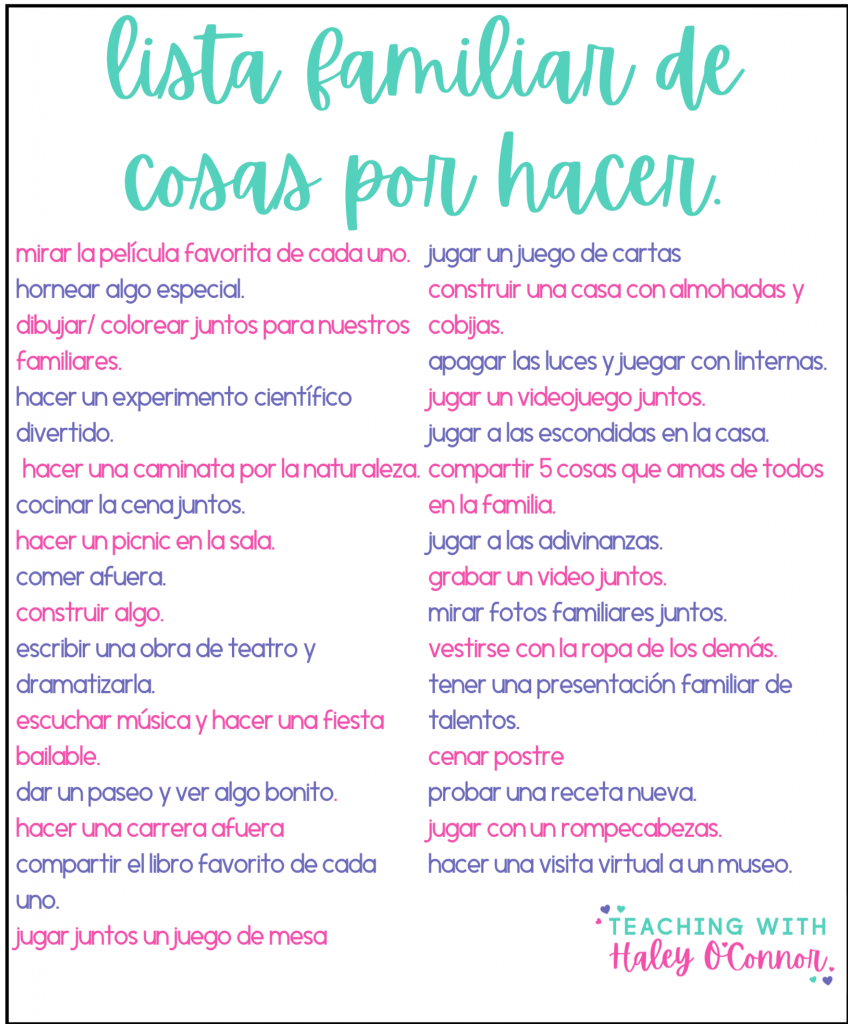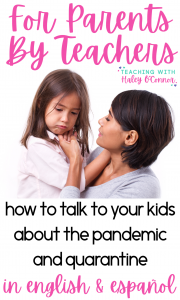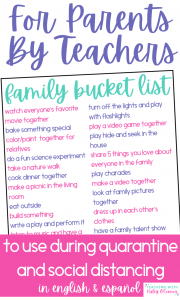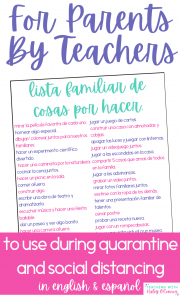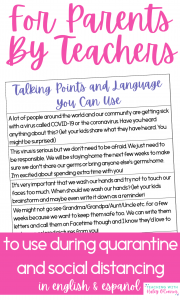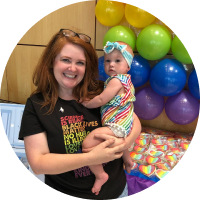Talking with Our Kids about COVID-19
Puede encontrar esto en español al final de esta publicación.
Over the next few weeks, I’ll be sharing tips for parents who have elementary students at home. Teachers, feel free to share these links with your families! This series is geared for parents with young elementary students but many of the tips I share can be used for older students.
I’m Haley and I am a mom, wife, educator and teacher educator. As we all navigate this uncharted territory I wanted to make sure you have the resources you need to make this time with your kids at home purposeful, fun and emotionally safe. I know many of you are a little panicked about your kids being in the house 24 hours a day for the foreseeable future and that’s okay! This whole thing is wild, but I promise with a little structure and some fun through in we can make this a memorable time for your kids.
I will be starting a blog series over the next few days with tips for you and resources you can use over the coming weeks. Today I wanted to talk about what we know and how to share it with your kids. Here’s what you can expect:
Today I wanted to talk about sharing the current situation with our kids. Every child is different and will have different “information” needs. Some will be content with a few conversations and some will need more frequent reassurance. Follow their lead and encourage questions.
Here are a few things you can do today to support your little ones.
Be honest and transparent and share based on your child’s needs. I encourage you to sit down with them in the next day or two and explain what is happening. They have heard things from all over, and you want to make sure you are the one sharing information with them. Here is some language you might want to use.
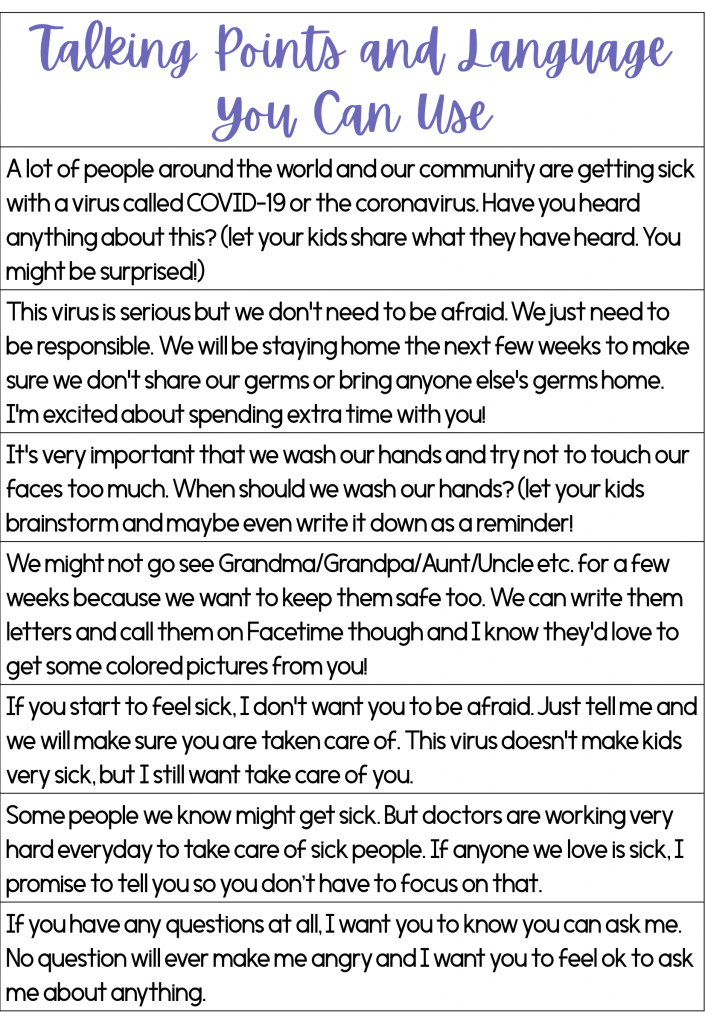
Avoid blaming or expressing your anger about specific groups. It’s really difficult for kids to process this and will over-generalize. For example, saying things like “They should have restricted travel weeks ago. People are bringing this virus over here” might make your kids things that their friends who have traveled are at fault. We know this isn’t true, but they don’t and their worlds are smaller than ours. It’s okay to be angry at the situation, politicians, etc. But try to reserve this anger for your friends or spouses. It is totally okay to say “I’m just feeling frustrated I can’t go to work” or “I hate that this is happening. I wish we could all be healthy.” Anger isn’t a bad thing, but directing it at people or groups of people can be confusing to kids.
Sit down as a family and make a bucket list of things you want to do while you’re home together. Even though this time is scary and serious, we can make it a positive memory for our kids. Having small things to look forward to will help everyone.
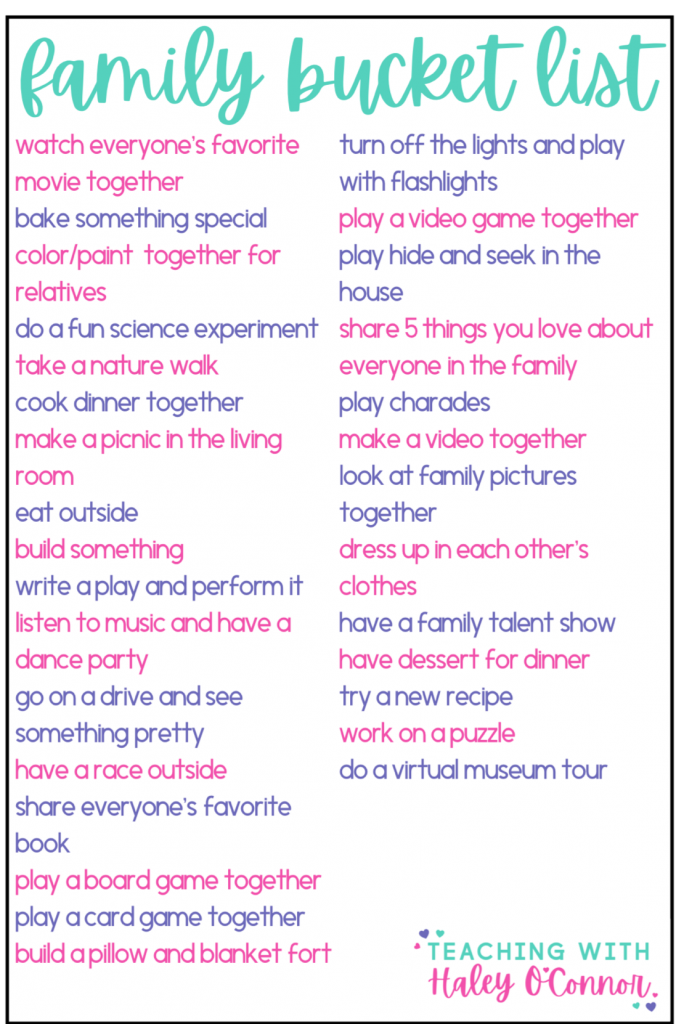
Address Misconceptions. Many teachers have reached out and shared some misconceptions their students have. A lot of it comes from them hearing bits and pieces and trying to understand it on their own. Your child might think only certain groups of people can get it or that everyone is going to die. Every child has different misconceptions so try to figure out what they believe about the current situation and go from there.
I hope you’ll come back tomorrow so we can talk about reading! If you have something else you’d like for me to cover, let me know! I also have a ton of free resources in my TPT store that you can pring from home. We love when parents make accounts and find things to use at home!
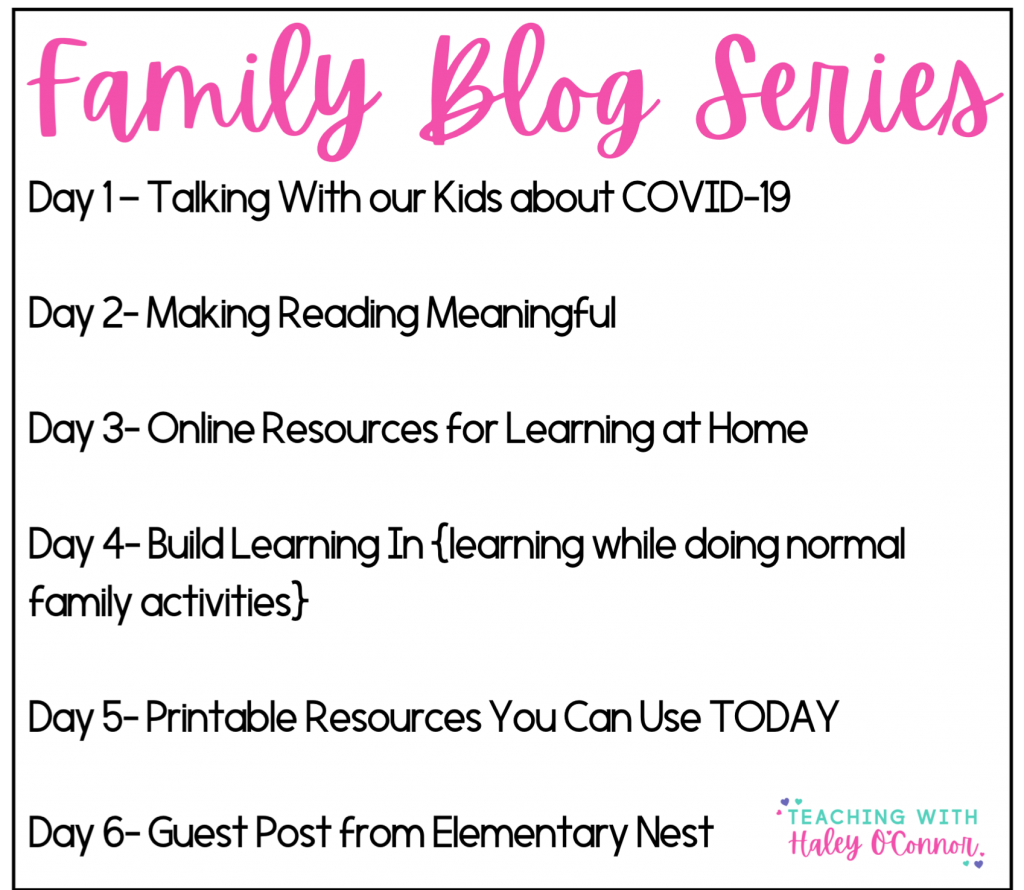
Durante las próximas semanas, compartiré consejos para padres que tienen estudiantes de primaria en casa. Maestros, ¡No duden en compartir estos enlaces con sus familias! Esta serie está dirigida a padres con estudiantes de primaria, pero muchos de los consejos que comparto se pueden usar con estudiantes mayores.
Soy Haley, soy madre, esposa, educadora y maestra. Mientras todos navegamos por este territorio desconocido, quería asegurarme de que ustedes tuvieran los recursos necesarios para pasar este tiempo con sus hijos en casa con un propósito, de una manera divertida y con un apoyo emocional. Sé que muchos de ustedes están un poco asustados por el hecho de que sus hijos estarán en la casa las 24 horas del día en un futuro próximo ¡Y eso está bien! Todo esto es una locura, pero prometo que con un poco de estructura y algo de diversión podemos hacer de este un momento memorable para sus hijos.
En los próximos días comenzaré una serie de blogs con consejos y recursos que puedes usar en las próximas semanas. Hoy quiero hablar sobre lo que sabemos y cómo compartirlo con tus hijos. Esto es lo que podemos esperar:
Hoy quiero hablar acerca de cómo compartir la situación actual con nuestros hijos. Cada niño es diferente y tendrá necesidades de “información” diferentes. Algunos estarán contentos con un diálogo breve y otros necesitarán mayor tranquilidad. Síguelos en su iniciativa y fomenta preguntas.
A continuación encontrarás algunas cosas que puedes hacer hoy para apoyar a tus pequeños.
Sé honesto y transparente y comparte según las necesidades de tu hijo. Te animo a que te sientes con ellos el día siguiente o dentro de dos días y les expliques lo que está sucediendo. Ellos han escuchado cosas de todas partes, y es mejor asegurarse de que tú eres quien comparte la información con ellos. Aquí hay un lenguaje que quizá quieras usar.
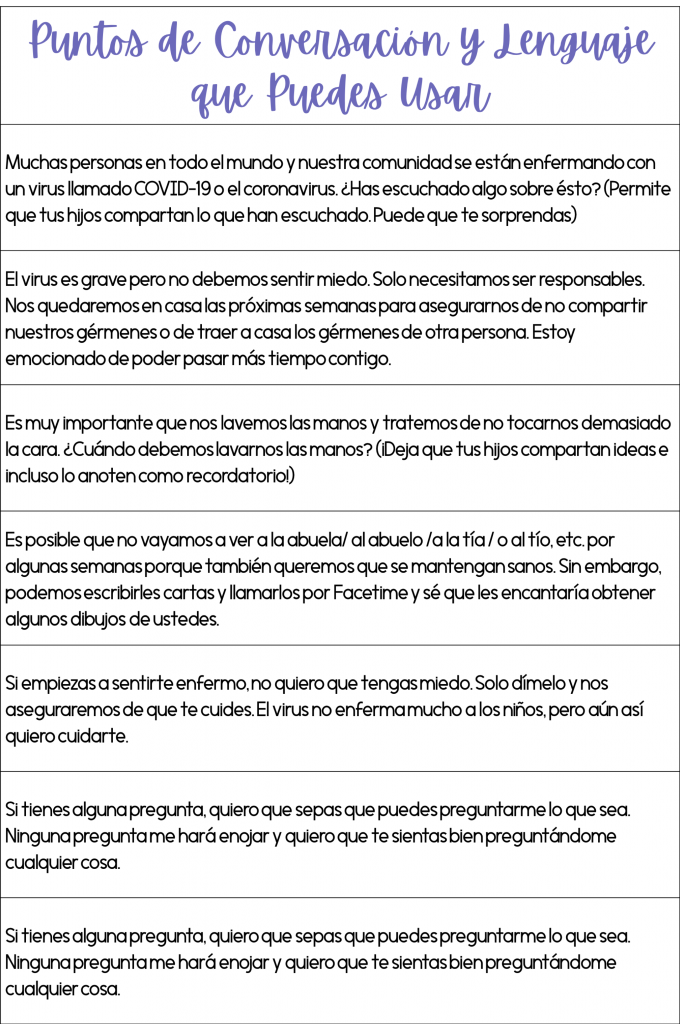
Evita culpar o expresar tu enojo por grupos específicos. Es muy difícil para los niños procesar todo esto, ellos generalizan todo en exceso. Por ejemplo, decir cosas como “Deberían haber restringido los viajes hace semanas. La gente está trayendo este virus” podría hacer que tus hijos piensen que sus amigos que han viajado tienen la culpa. Nosotros sabemos que esto no es cierto, pero ellos no lo saben y su mundo es más pequeño que el nuestro. Está bien enojarse con la situación, los políticos, etc. Pero procura guardar ese enojo para cuando estes con tus amigos o cónyuge. Está totalmente bien decir “Me siento frustrado porque no puedo ir a trabajar” o “No me gusta que esto esté sucediendo. Desearía que todos pudiéramos estar sanos “. La ira no es algo malo, pero dirigirla a personas o grupos de personas puede ser confuso para los niños.
Reúnanse en familia y hagan una lista de cosas que quisieran hacer mientras están juntos en casa. Aunque esta vez es alarmante y grave, podemos convertirlo en un recuerdo positivo para nuestros hijos. Tener cosas pequeñas que esperar nos ayudará a todos.
